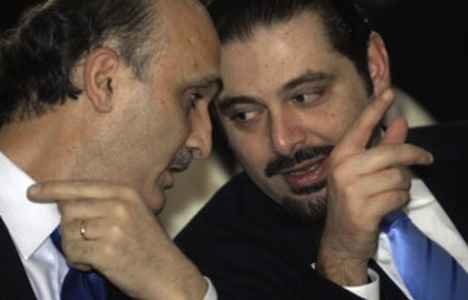Generally, the depressingly familiar storyline in Lebanon goes something like this:![]()
First, the powerful Shiite political organization Hezbollah does something outrageous with respect to opposing Israel or supporting Bashar al-Assad in Syria. In doing so, Hezbollah makes it clear that not only is it willing to prioritize its own international policy over maintaining Lebanese unity, but that it has sufficient military and political power to do so no matter what anyone else in Lebanon thinks. Finally, everyone else in the Lebanon grumbles at Hezbollah for usurping the military and political roles that should properly belong to the Lebanese government, and in so doing, jeopardizing the fragile national unity that everyone else in Lebanon has been boosting since the end of Lebanon’s own civil war in the 1980s.
It was Hezbollah, after all, that was responsible for rope-a-doping Israel into the 2006 summer war — though it turns out that Hezbollah was successful in forcing an end to Israeli military occupation in southern Lebanon, it was Hezbollah (not the Lebanese government) that decided that it was appropriate to provoke Israel into a months-long bombing campaign that destabilized all of Lebanon, not just the southern Shiite strongholds where Hezbollah’s influence is strongest.
That storyline has become increasingly complicated with Sunni groups that are now becoming more ‘Hezbollah-like’ in prioritizing their support of (largely Sunni) anti-Assad rebels in the Syrian civil war as Hezbollah has made it clear that it will openly and notoriously support the Assad regime, thereby risking Lebanese unity even more. But by and large, the story of Lebanon’s attempt to stay out of trouble in the Middle East over the past decade has involved trying to pull Hezbollah back from the ledge.
So while no one ever welcomes a bomb blast of the kind that Lebanon suffered yesterday — a blast in the largely Shiite southern suburbs of Beirut that killed up to 20 people and injured nearly 300– it is heartening to see that the response from the entire political community in Lebanon has been to condemn the bombing. Though a murky, heretofore unknown group calling themselves the ‘Brigade of Aisha, the Mother of the Faithful’ took credit for the attack, it could have been any number of Hezbollah’s enemies — radical Sunni groups within Lebanon, anti-Assad rebels from Syria angry at Hezbollah’s growing role in propping up Assad or, perhaps more outlandishly, Israeli special agents who want to take Hezbollah down a peg or two (as Lebanese president Michel Suleiman appeared to suggest yesterday).
The larger point here isn’t who was responsible for a bomb that seems squarely aimed at Hezbollah, but that even when the shoe is on the other foot, when it’s Hezbollah that’s the victim and not the instigator of violence in Lebanon — even despite its role as a wayward force that causes all sorts of problems for everyone else in Lebanon who just want to live their lives peacefully and in harmony — the attack is condemned not only by Lebanese Shi’a, but by mainstream Sunni and Maronite leaders as well. Former prime minister Saad Hariri, who is about as strong an opponent of Hezbollah as anyone, denounced the attack, as did Samir Geagea (pictured above, left, with Hariri, right), the leader of the Lebanese Forces, a Maronite group.
and Christian Maronite (president Michel Suleiman) leaders who are certainly do not count themselves among Hezbollah’s fans.
If there’s one silver lining to Thursday’s attack, it’s that the Lebanese political community had an opportunity to show Hezbollah and its supporters that national unity means just that — when you attack one group of Lebanese, you attack all of them, despite the fact that there are many, many differences among Lebanon’s myriad political and religious communities. It’s a subtle point, but it’s important, and it’s one of the reasons why Lebanon (much to its credit) has avoided much of the blowback from Syria’s destabilizing civil war.
